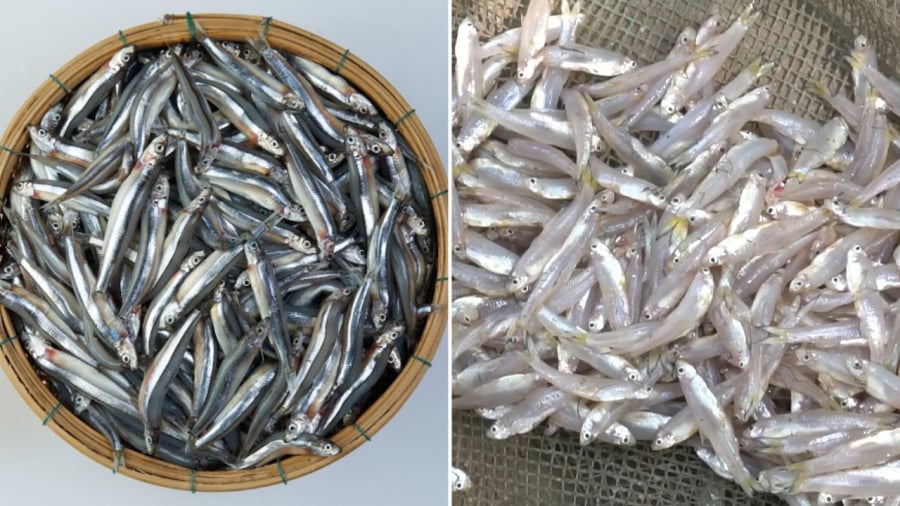The fish we are referring to here is sardines, a common type of fish found in many seas worldwide. Sardines are also abundantly caught in Vietnam.
Sardines are small in size, typically growing to only about 3-7cm in length. They have elongated, slender, and streamlined bodies. Their skin color ranges from bluish to pale gray with a purplish tint on their backs, while their bellies are silver-white.

Despite their small size, sardines pack a powerful nutritional punch, rivaling larger fish like salmon, tuna, and mackerel.
These tiny fish are nutritional powerhouses, offering a plethora of health benefits. Sardines are an excellent source of omega-3 fatty acids, iron, protein, and various vitamins and minerals. Incorporating sardines into your diet boosts overall nutrition, promotes cardiovascular and brain health, and may help prevent certain diseases.
What are the health benefits of sardines?
– Heart-healthy choice
Sardines are rich in omega-3 fatty acids, which have been shown to lower levels of neutral fats, slow the buildup of plaque in arteries, aid in lowering blood pressure, prevent blood clots, and reduce the risk of heart attacks and strokes. Overall, sardines are a heart-healthy food choice.
Omega-3 fatty acids are comprised of two types: eicosapentaenoic acid (EPA) and docosahexaenoic acid (DHA). Research indicates that consuming approximately 566 milligrams of EPA and DHA can lead to a 37% reduction in the risk of death from cardiovascular disease. Eating just 45 grams of sardines provides your body with a sufficient amount of omega-3s.
Sardines are also a good source of selenium, a powerful anti-inflammatory and antioxidant that helps lower the risk of heart disease.
– Protein-rich superfood
Consuming 45 grams of sardines provides your body with 13 grams of high-quality protein. This makes sardines an excellent food choice to include in your diet to boost your protein intake.
Eating protein-rich foods aids in weight loss and maintaining lean muscle mass. Additionally, the protein in sardines is easily digestible and metabolized compared to protein from some other meat sources.
– Vision support
Omega-3 fatty acids are not only beneficial for heart health but also for eye health. They help prevent age-related macular degeneration, a leading cause of vision loss.

Sardines offer not just nutritional benefits but also versatility in the kitchen, making them a tasty and healthy addition to your meals.
– Thyroid health
Sardines are an excellent source of selenium, which is crucial for maintaining a healthy thyroid. Selenium deficiency is one of the leading causes of thyroid-related issues.
– Blood-boosting benefits
Sardines are rich in iron, which stimulates red blood cell production and prevents iron-deficiency anemia.
– Immune system boost
In addition to omega-3s, sardines provide a good amount of vitamins, including B-complex vitamins and vitamin D, as well as minerals like iron, calcium, and phosphorus. These nutrients work together to strengthen the immune system, reduce inflammation, and lower the risk of autoimmune diseases.
Some precautions when consuming sardines
It is recommended to cook sardines before consumption. While some people enjoy eating them raw in dishes like sashimi or ceviche, doing so increases the risk of parasitic infections, which can cause digestive issues and other unpleasant symptoms such as abdominal pain, nausea, diarrhea, itching, and rashes.
If you are taking anticoagulant or antiplatelet medications, it is advisable to consult your doctor before incorporating sardines into your diet regularly. This is because omega-3-rich foods like sardines may interact with these medications, reducing their effectiveness or causing adverse effects.





































